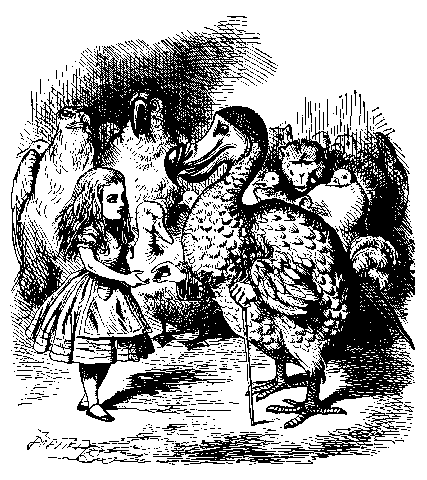Edie Melson's Blog, page 403
August 20, 2014
Making the Most of Your Marketing Time
 Today I'm excited to have another amazing post from Jennifer Slattery. She's sharing some of her thoughts on marketing.
Today I'm excited to have another amazing post from Jennifer Slattery. She's sharing some of her thoughts on marketing.Jennifer Slattery writes Missional Romance for New Hope Publishers, a publishing house passionate about bringing God’s healing grace and truth to the hopeless. Her debut novel, Beyond I Do, is currently available for preorder at a 33% discount. You can find it here on ChristianBook.com. Connect with Jennifer on her website and through Twitter and Facebook.
Making the Most of Your Marketing Time
by Jennifer Slattery @JenSlattery
With the advent of the Internet, Blogger, and WordPress, writers have free access to an unlimited marketing source. However, we have a very limited amount of time. Because of this, it’s wise to choose our endeavors carefully. When it comes to cyberspace, not all blogs are created equal. Some are good, some are average, and some are flat-out not worth your time.
In other words, when developing your marketing plan…
You do have one, right?
Because if you haven’t taken the time to intentionally planyour launch, you’ll expend a great deal of energy with little to show for it. You could easily over-schedule yourself on small blogs and sites, reaching the few, leaving little time or creativity to reach the most.
When preparing for your launch, here are some steps to help you maximize your time and efforts while reducing your stress.
Seek Out High-Audience Blogging Opportunities
 When I was the marketing manager for Clash of the Titles, my role was to create a buzz for, at the time, a relatively unknown site. I decided to go big and approached some of the most well-known literary sites and ezines in the CBA. I figured the worst they could do was say no. Turns out, they didn’t. In fact, every site I approached invited me to send them material. But I didn’t go in blind. Here’s how I did it: I spent an hour or so reading their blog or ezine. I made note of their tone, the topics they covered, and determined their audience. (It helps to approach the larger sites well ahead of your launch date.) Then I brainstormed some post ideas based on what I read. Once I’d done all that, I included what I’d learned about the site or ezine in my pitch, tailoring my experiences to match. (In other words, I make sure to include my credentials for writing the piece.)Use Reprints for Smaller SitesWhen approaching or responding to invitations from smaller sites, always ask if they’ll accept reprints. Assure them you’ll send them something that published a minimum of six months prior. If they have a problem with this, tweak an old post to make it fresh. You should be able to get 8-10 uses from each post.
When I was the marketing manager for Clash of the Titles, my role was to create a buzz for, at the time, a relatively unknown site. I decided to go big and approached some of the most well-known literary sites and ezines in the CBA. I figured the worst they could do was say no. Turns out, they didn’t. In fact, every site I approached invited me to send them material. But I didn’t go in blind. Here’s how I did it: I spent an hour or so reading their blog or ezine. I made note of their tone, the topics they covered, and determined their audience. (It helps to approach the larger sites well ahead of your launch date.) Then I brainstormed some post ideas based on what I read. Once I’d done all that, I included what I’d learned about the site or ezine in my pitch, tailoring my experiences to match. (In other words, I make sure to include my credentials for writing the piece.)Use Reprints for Smaller SitesWhen approaching or responding to invitations from smaller sites, always ask if they’ll accept reprints. Assure them you’ll send them something that published a minimum of six months prior. If they have a problem with this, tweak an old post to make it fresh. You should be able to get 8-10 uses from each post.  Keep a File of Everything You WriteLaunch time necessitates chaos, so why add to it by having to search your computer for old posts and articles? Rather, create a file specifically for this purpose, and begin filling it ahead of time. Plan to have a stock of 10-15 posts ready and waiting for launch-day. Then, when blog tours come, you can send out what you’ve already written and spend the rest of your time working on your next book.
Keep a File of Everything You WriteLaunch time necessitates chaos, so why add to it by having to search your computer for old posts and articles? Rather, create a file specifically for this purpose, and begin filling it ahead of time. Plan to have a stock of 10-15 posts ready and waiting for launch-day. Then, when blog tours come, you can send out what you’ve already written and spend the rest of your time working on your next book. Make it Easy on Your HostIt can be incredibly frustrating to find your host neglected to include your purchase links or back cover blurb. To avoid this, add everything you want to see in the post in one document. This way, your host won’t have to go fishing around for anything—and be tempted to forego links on exceptionally busy days. Also consider sending royalty free images to accompany your piece when you send it. As an added bonus, the easier you make the experience on your host, the more apt they will be to host you again.
 Keep a List of Connections Finding blog hosts, influencers, and reviewers is hard work. Make that work count by keeping a spreadsheet with contacts, their blog or e-zine slant, and any other pertinent information. Begin forming this list well in advanced of your launch, and add to it regularly by making note of reviews and author interviews on Facebook and Twitter. Then remember step one explained above? Review the sites and contact the hosts.
Keep a List of Connections Finding blog hosts, influencers, and reviewers is hard work. Make that work count by keeping a spreadsheet with contacts, their blog or e-zine slant, and any other pertinent information. Begin forming this list well in advanced of your launch, and add to it regularly by making note of reviews and author interviews on Facebook and Twitter. Then remember step one explained above? Review the sites and contact the hosts.
Marketing is tough and time consuming, but with some thought and planning, writers can make the most of every word typed.
What are some things you do to maximize your marketing time? Have you ever approached a blogger unknown to you asking if you could write a guest post for them? What happened?
TWEETABLES
Are you making the most of your #bookmarketing time? Tips from author @Jenslattery on @EdieMelson (Click to Tweet)
Marketing your book requires planning and forethought - a list of tips from @JenSlattery on @EdieMelson (Click to Tweet)
 BEYOND I DO
Ainsley Meadow’s encounter with a woman, her child, and their abuser sparks a passion that threatens her engagement.
BEYOND I DO
Ainsley Meadow’s encounter with a woman, her child, and their abuser sparks a passion that threatens her engagement.
Will seeing beyond the present unite her and her fiancé or tear them apart?
Raised by a hedonist mother, who cycles through jobs and relationships like wrapping paper on Christmas morning, falls into a predictable and safe relationship with Richard, a self-absorbed socialite psychiatrist. But as her wedding nears, a battered woman and her child spark a long-forgotten dream and ignites a hidden passion. One that threatens to change everything, including her fiancé. To embrace God’s best and find true love, this security-seeking bride must follow God with reckless abandon and realize that marriage goes Beyond I Do.
You can read a free sample of her novel here:http://issuu.com/newhopedigital/docs/beyond_i_do_sample?e=6362996/8842858
Published on August 20, 2014 01:00
August 19, 2014
A Dozen Indie Writing Rules You Should Sometimes Break
by +EdieMelson @EdieMelson
 Classroom Rules . . . NOT!One of the first things we encounter as new writers are the rules of writing. Unfortunately these rules are presented as immovable precepts that writers must abide by to reach the goal of being publishable.
Classroom Rules . . . NOT!One of the first things we encounter as new writers are the rules of writing. Unfortunately these rules are presented as immovable precepts that writers must abide by to reach the goal of being publishable.
Then, as we gain more experience, we encounter certain anomalies hidden within the writing community. What once was black and white has no turned a muddy gray. And as confusing as it may be, that muddy gray is the place we want to be. Very few things are cut and dried in the publishing industry. So today I want to share a dozen writing rules you should sometimes break. Show don't tell is whispered everywhere.1. Show don’t tell. This mantra is whispered at every place where two or more writers gather. We’re told that telling is always bad. The truth is something entirely different. There are time when you want to tell something instead of showing it. The key is in knowing when to do what.
Show don't tell is whispered everywhere.1. Show don’t tell. This mantra is whispered at every place where two or more writers gather. We’re told that telling is always bad. The truth is something entirely different. There are time when you want to tell something instead of showing it. The key is in knowing when to do what.
2. Never use sentence fragments. I’d have to vehemently disagree with this one. Sometimes fragments are a great way to add emphasis and in dialogue they’re a must. Follow a conversation closely and you’ll see we talk in sentence fragments.
3. Prologues will keep your book from getting read. Not true. There are times when a prologue makes the story better. It can give the reader the information they need to connect with a character, help establish the stakes of what a character wants or something else entirely.
 Adverbs are said to be a sign of lazy writing . . . NOT!4. Adverbs are always a sign of lazy writing. Again, not always. There are adverbs and there are adverbs. Consider these examples:Dorothy smiled happily. Happily is unnecessary here, a smile is generally happy so the adverb doesn’t tell us a thing we don’t already assume. Dorothy smiled sadly.The use of sadly here is something unexpected and adds a new dimension to the sentence. This is an adverb worth keeping.
Adverbs are said to be a sign of lazy writing . . . NOT!4. Adverbs are always a sign of lazy writing. Again, not always. There are adverbs and there are adverbs. Consider these examples:Dorothy smiled happily. Happily is unnecessary here, a smile is generally happy so the adverb doesn’t tell us a thing we don’t already assume. Dorothy smiled sadly.The use of sadly here is something unexpected and adds a new dimension to the sentence. This is an adverb worth keeping.
5. Never end a sentence with a preposition. There are time when it’s wrong, but there are times when it’s fine. For instance, this sentence. What did you step in?
 Successful writers work from an outline . . . NOT!6. Successful writers must always work from an outline. This is usually one of the first rules that gets tossed out the window. A lot of successful writers are intuitive writers, meaning that they start without a plan and follow the story to the end.
Successful writers work from an outline . . . NOT!6. Successful writers must always work from an outline. This is usually one of the first rules that gets tossed out the window. A lot of successful writers are intuitive writers, meaning that they start without a plan and follow the story to the end.
7. Never start a sentence with AND, BUT or OR. You don’t want to do it all the time, but especially in dialogue you’ll have instances where you should start a sentence with and or but.
8. Don’t use clichés.This is one I hear a lot, and I do think you have to be careful about this. But it could be that you have a character who talks in clichés, then you’d need them. And sometimes, clichés just work. So be careful, but don’t be legalistic.
 Never, never, never . . . beware of never.9. Never use passive verbs. Active verbs are usually the best choice, but not always. Sometimes inserting an active verb makes a sentence too complicated.
Never, never, never . . . beware of never.9. Never use passive verbs. Active verbs are usually the best choice, but not always. Sometimes inserting an active verb makes a sentence too complicated.
10. WAS is a passive verb. Yes it is—sometimes. It’s also past tense verb. Using it in the past tense is fine. See #9 about using it in its passive form.
11. Never use sentence fragments. I’d have to vehemently disagree with this one. Sometimes fragments are a great way to add emphasis and in dialogue they’re a must. Follow a conversation closely and you’ll see we talk in sentence fragments.
12. Write what you know. In today’s digital paradigm, research is just a click away. I think it’s much more important to write what you want to know. If you’re passionate about a subject, that will come through in your writing.
These are the rules that I know can be broken when the situation calls for it. I’d like to know which writing rules you sometimes throw out the window. Be sure to leave your thoughts in the comments section below.
Don’t forget to join the conversation!Blessings,Edie
TWEETABLESAccording to @EdieMelson here are 12 hard & fast #writing rules you should sometimes break (Click to Tweet)
Write better by breaking the rules when the occasion calls for it – via @EdieMelson (Click to Tweet)
 Classroom Rules . . . NOT!One of the first things we encounter as new writers are the rules of writing. Unfortunately these rules are presented as immovable precepts that writers must abide by to reach the goal of being publishable.
Classroom Rules . . . NOT!One of the first things we encounter as new writers are the rules of writing. Unfortunately these rules are presented as immovable precepts that writers must abide by to reach the goal of being publishable. Then, as we gain more experience, we encounter certain anomalies hidden within the writing community. What once was black and white has no turned a muddy gray. And as confusing as it may be, that muddy gray is the place we want to be. Very few things are cut and dried in the publishing industry. So today I want to share a dozen writing rules you should sometimes break.
 Show don't tell is whispered everywhere.1. Show don’t tell. This mantra is whispered at every place where two or more writers gather. We’re told that telling is always bad. The truth is something entirely different. There are time when you want to tell something instead of showing it. The key is in knowing when to do what.
Show don't tell is whispered everywhere.1. Show don’t tell. This mantra is whispered at every place where two or more writers gather. We’re told that telling is always bad. The truth is something entirely different. There are time when you want to tell something instead of showing it. The key is in knowing when to do what.2. Never use sentence fragments. I’d have to vehemently disagree with this one. Sometimes fragments are a great way to add emphasis and in dialogue they’re a must. Follow a conversation closely and you’ll see we talk in sentence fragments.
3. Prologues will keep your book from getting read. Not true. There are times when a prologue makes the story better. It can give the reader the information they need to connect with a character, help establish the stakes of what a character wants or something else entirely.
 Adverbs are said to be a sign of lazy writing . . . NOT!4. Adverbs are always a sign of lazy writing. Again, not always. There are adverbs and there are adverbs. Consider these examples:Dorothy smiled happily. Happily is unnecessary here, a smile is generally happy so the adverb doesn’t tell us a thing we don’t already assume. Dorothy smiled sadly.The use of sadly here is something unexpected and adds a new dimension to the sentence. This is an adverb worth keeping.
Adverbs are said to be a sign of lazy writing . . . NOT!4. Adverbs are always a sign of lazy writing. Again, not always. There are adverbs and there are adverbs. Consider these examples:Dorothy smiled happily. Happily is unnecessary here, a smile is generally happy so the adverb doesn’t tell us a thing we don’t already assume. Dorothy smiled sadly.The use of sadly here is something unexpected and adds a new dimension to the sentence. This is an adverb worth keeping.5. Never end a sentence with a preposition. There are time when it’s wrong, but there are times when it’s fine. For instance, this sentence. What did you step in?
 Successful writers work from an outline . . . NOT!6. Successful writers must always work from an outline. This is usually one of the first rules that gets tossed out the window. A lot of successful writers are intuitive writers, meaning that they start without a plan and follow the story to the end.
Successful writers work from an outline . . . NOT!6. Successful writers must always work from an outline. This is usually one of the first rules that gets tossed out the window. A lot of successful writers are intuitive writers, meaning that they start without a plan and follow the story to the end.7. Never start a sentence with AND, BUT or OR. You don’t want to do it all the time, but especially in dialogue you’ll have instances where you should start a sentence with and or but.
8. Don’t use clichés.This is one I hear a lot, and I do think you have to be careful about this. But it could be that you have a character who talks in clichés, then you’d need them. And sometimes, clichés just work. So be careful, but don’t be legalistic.
 Never, never, never . . . beware of never.9. Never use passive verbs. Active verbs are usually the best choice, but not always. Sometimes inserting an active verb makes a sentence too complicated.
Never, never, never . . . beware of never.9. Never use passive verbs. Active verbs are usually the best choice, but not always. Sometimes inserting an active verb makes a sentence too complicated. 10. WAS is a passive verb. Yes it is—sometimes. It’s also past tense verb. Using it in the past tense is fine. See #9 about using it in its passive form.
11. Never use sentence fragments. I’d have to vehemently disagree with this one. Sometimes fragments are a great way to add emphasis and in dialogue they’re a must. Follow a conversation closely and you’ll see we talk in sentence fragments.
12. Write what you know. In today’s digital paradigm, research is just a click away. I think it’s much more important to write what you want to know. If you’re passionate about a subject, that will come through in your writing.
These are the rules that I know can be broken when the situation calls for it. I’d like to know which writing rules you sometimes throw out the window. Be sure to leave your thoughts in the comments section below.
Don’t forget to join the conversation!Blessings,Edie
TWEETABLESAccording to @EdieMelson here are 12 hard & fast #writing rules you should sometimes break (Click to Tweet)
Write better by breaking the rules when the occasion calls for it – via @EdieMelson (Click to Tweet)
Published on August 19, 2014 01:00
August 18, 2014
Free Ebook Giveaway from Great American Novelist, Warren Adler!

Warren Adler is giving away 600 free ebooks. Just leave me a comment with your email address AND THE BOOK YOU WANT, and I'll see that you get put on the list!
Published on August 18, 2014 15:10
Social media Monday—Google Plus for Writers Part Four—Yes You can Schedule Google+ Updates!
by +EdieMelson @EdieMelson

Today I’m going to finish out my series on Google Plus by telling you how to set up your Google Plus account so you can use a program like Hootsuite or Buffer to schedule your posts. But before we get started, if you missed the first three posts in this series, here are the direct links:Google Plus for Writers Part One—Establish GoogleAuthorshipGoogle Plus for Writers Part Two—So What's Up with CirclesGoogle Plus for Writers PartThree—Set Up Your ProfileI’ve been watching Google Plus almost since it began. I was invited to be a beta user and was immediately intrigued and pleased with the potential I saw in this social media platform. As Google+ became accessible to everyone, the one big drawback was the fact that you couldn’t schedule updates in an ancillary program like Hootsuite or Buffer.
 As many of you know, utilizing a scheduling program is the foundation of how I manage my social media life. So there was no way I was going to change my way of doing things for one network.
As many of you know, utilizing a scheduling program is the foundation of how I manage my social media life. So there was no way I was going to change my way of doing things for one network.
Then Google+ enabled pages and almost immediately released permission for these to be added to the networks available on Hootsuite and others.
Now don’t panic. I felt the same way you do when I first heard about something else that segregates users into personal profiles and professional pages. Because of my prejudice (thank you Facebook) I was slow to explore all the options this opened up.
But eventually my curiosity won out and I began to explore this new aspect of Google Plus. What I found encouraged me to experiment. Here’s what I found:It’s easy to open a Google+ page in addition to your personal profile.When you connect your Google+ profile and page, scheduling updates to your Google+ page will not just grow your Google+ page, but also your Google+ profile.Here’s how to do this:
1. Go to your Google + Profile and click on PAGES in the vertical menu on the left side of your screen (see screenshot below). Screenshot 1
Screenshot 1
2. Click on GET YOUR PAGE. If you don’t already have a page, this is all you’ll see on this page. You can see in the screenshot below that I already have two Google+ pages. Screenshot 23. Choose your business type. I recommend choosing BRAND (see screenshot below).
Screenshot 23. Choose your business type. I recommend choosing BRAND (see screenshot below).
 Screenshot 34. Now you’ll need to fill out the form. It’s fairly self-explanatory until you get to TYPE OF PAGE. You only have 4 choices:Product or BrandEntertainmentCommunityOther
Screenshot 34. Now you’ll need to fill out the form. It’s fairly self-explanatory until you get to TYPE OF PAGE. You only have 4 choices:Product or BrandEntertainmentCommunityOther
I chose Community, but from what I can tell, it really doesn’t matter which one you pick. Below is a screenshot showing you how I filled out the form. Screenshot 45. Now add your photo and a cover to your page account. You do this the same way you did for your Google+ profile.
Screenshot 45. Now add your photo and a cover to your page account. You do this the same way you did for your Google+ profile.
6. There are two final things you need to do to connect your page and your profile. Go to your personal profile and add your page to your circles.Go to your page and add your personal profile to your circles.
Using these instructions, you can now schedule you Google+ updates to your page and grow all aspects of your Google+ account.
Here are a few random things you need to know: I don’t do anything with my Google+ page. I still do most of my interaction on my profile. The only thing I do is use my page to schedule updates.You’ll get notifications that people have added your page to their circles. You can add them back or not as you please. I go in about twice a week and check my notifications (this is where you’ll find who has added you to circles) and add back people.
This is my last planned post in this series. But if I get additional questions in the comments section, I add an encore. So be sure to let me know if there’s something else you’d like to know about Google Plus for Writers.
Don’t forget to join the conversation!Blessings,Edie
TWEETABLESYes, you canschedule #socialmedia updates for Google+ - @EdieMelson shares how on Google+for Writers (Click to Tweet)
Google+ for Writers -#SocialMedia Mentor @EdieMelson shares instructions for scheduling Google+updates (Click to Tweet)

Today I’m going to finish out my series on Google Plus by telling you how to set up your Google Plus account so you can use a program like Hootsuite or Buffer to schedule your posts. But before we get started, if you missed the first three posts in this series, here are the direct links:Google Plus for Writers Part One—Establish GoogleAuthorshipGoogle Plus for Writers Part Two—So What's Up with CirclesGoogle Plus for Writers PartThree—Set Up Your ProfileI’ve been watching Google Plus almost since it began. I was invited to be a beta user and was immediately intrigued and pleased with the potential I saw in this social media platform. As Google+ became accessible to everyone, the one big drawback was the fact that you couldn’t schedule updates in an ancillary program like Hootsuite or Buffer.
 As many of you know, utilizing a scheduling program is the foundation of how I manage my social media life. So there was no way I was going to change my way of doing things for one network.
As many of you know, utilizing a scheduling program is the foundation of how I manage my social media life. So there was no way I was going to change my way of doing things for one network.Then Google+ enabled pages and almost immediately released permission for these to be added to the networks available on Hootsuite and others.
Now don’t panic. I felt the same way you do when I first heard about something else that segregates users into personal profiles and professional pages. Because of my prejudice (thank you Facebook) I was slow to explore all the options this opened up.
But eventually my curiosity won out and I began to explore this new aspect of Google Plus. What I found encouraged me to experiment. Here’s what I found:It’s easy to open a Google+ page in addition to your personal profile.When you connect your Google+ profile and page, scheduling updates to your Google+ page will not just grow your Google+ page, but also your Google+ profile.Here’s how to do this:
1. Go to your Google + Profile and click on PAGES in the vertical menu on the left side of your screen (see screenshot below).
 Screenshot 1
Screenshot 12. Click on GET YOUR PAGE. If you don’t already have a page, this is all you’ll see on this page. You can see in the screenshot below that I already have two Google+ pages.
 Screenshot 23. Choose your business type. I recommend choosing BRAND (see screenshot below).
Screenshot 23. Choose your business type. I recommend choosing BRAND (see screenshot below).
 Screenshot 34. Now you’ll need to fill out the form. It’s fairly self-explanatory until you get to TYPE OF PAGE. You only have 4 choices:Product or BrandEntertainmentCommunityOther
Screenshot 34. Now you’ll need to fill out the form. It’s fairly self-explanatory until you get to TYPE OF PAGE. You only have 4 choices:Product or BrandEntertainmentCommunityOtherI chose Community, but from what I can tell, it really doesn’t matter which one you pick. Below is a screenshot showing you how I filled out the form.
 Screenshot 45. Now add your photo and a cover to your page account. You do this the same way you did for your Google+ profile.
Screenshot 45. Now add your photo and a cover to your page account. You do this the same way you did for your Google+ profile.6. There are two final things you need to do to connect your page and your profile. Go to your personal profile and add your page to your circles.Go to your page and add your personal profile to your circles.
Using these instructions, you can now schedule you Google+ updates to your page and grow all aspects of your Google+ account.
Here are a few random things you need to know: I don’t do anything with my Google+ page. I still do most of my interaction on my profile. The only thing I do is use my page to schedule updates.You’ll get notifications that people have added your page to their circles. You can add them back or not as you please. I go in about twice a week and check my notifications (this is where you’ll find who has added you to circles) and add back people.
This is my last planned post in this series. But if I get additional questions in the comments section, I add an encore. So be sure to let me know if there’s something else you’d like to know about Google Plus for Writers.
Don’t forget to join the conversation!Blessings,Edie
TWEETABLESYes, you canschedule #socialmedia updates for Google+ - @EdieMelson shares how on Google+for Writers (Click to Tweet)
Google+ for Writers -#SocialMedia Mentor @EdieMelson shares instructions for scheduling Google+updates (Click to Tweet)
Published on August 18, 2014 01:00
August 17, 2014
Weekend Worship—How Do I Know the Voice I’m Hearing is REALLY God?
When he has brought out all his own, he goes on ahead of them, and his sheep follow him because they know his voice. But they will never follow a stranger; in fact, they will run away from him because they do not recognize a stranger's voice." John 10:4-5 (NIV)
 Throughout my years of teaching, there’s one question I get asked the most.
Throughout my years of teaching, there’s one question I get asked the most.
“How do I know the voice I’m hearing is really God?”
The answer is at once very simple and very hard. You can tell it’s God’s voice, because you recognize it.
I’ve come to realize that voice is vitally important to a writer in two ways:We have to come to embrace and utilize the uniqueness of our own personal voice when we write. This is a topic of craft.We also have to come to recognize God’s voice so that we can move forward when He calls, and share what He has for us to share. This is a topic of the heart.
 That’s brings us back to the original question. How do we recognize God’s voice?
That’s brings us back to the original question. How do we recognize God’s voice?
How do we recognize anyone’s voice? We do so by becoming familiar with the timber, pitch and way of speaking.
I can’t count the number of times that I’ve answered the phone and the person at the other end launches directly into the conversation without identifying themselves. Sometimes I can spend several moments wondering who they were. I’ve found this doesn’t often happen when the person on the other end is a close friend.
The reason? I recognize the voices of my friends because I spend a good deal of time with them. I know the tone of voice and I know the way they speak.
To recognize God’s voice we have to do the same thing—spend time with Him. We must invest quality time in prayer, worship and study with Him. With that commitment of time has come the reward of a deep relationship and the assurance of knowing whose voice we hear.
This doesn’t mean I always get it right. there are still times when I question whether or not it’s God speaking. But God knows me and knows how to get my attention if I’m unsure. And I can say with certainty that those times have become less and less, the closer I get to God.
What are some ways you’ve found to recognize God’s voice? I’d love to hear your stories.
 Throughout my years of teaching, there’s one question I get asked the most.
Throughout my years of teaching, there’s one question I get asked the most. “How do I know the voice I’m hearing is really God?”
The answer is at once very simple and very hard. You can tell it’s God’s voice, because you recognize it.
I’ve come to realize that voice is vitally important to a writer in two ways:We have to come to embrace and utilize the uniqueness of our own personal voice when we write. This is a topic of craft.We also have to come to recognize God’s voice so that we can move forward when He calls, and share what He has for us to share. This is a topic of the heart.
 That’s brings us back to the original question. How do we recognize God’s voice?
That’s brings us back to the original question. How do we recognize God’s voice? How do we recognize anyone’s voice? We do so by becoming familiar with the timber, pitch and way of speaking.
I can’t count the number of times that I’ve answered the phone and the person at the other end launches directly into the conversation without identifying themselves. Sometimes I can spend several moments wondering who they were. I’ve found this doesn’t often happen when the person on the other end is a close friend.
The reason? I recognize the voices of my friends because I spend a good deal of time with them. I know the tone of voice and I know the way they speak.
To recognize God’s voice we have to do the same thing—spend time with Him. We must invest quality time in prayer, worship and study with Him. With that commitment of time has come the reward of a deep relationship and the assurance of knowing whose voice we hear.
This doesn’t mean I always get it right. there are still times when I question whether or not it’s God speaking. But God knows me and knows how to get my attention if I’m unsure. And I can say with certainty that those times have become less and less, the closer I get to God.
What are some ways you’ve found to recognize God’s voice? I’d love to hear your stories.
Published on August 17, 2014 01:00
August 16, 2014
Social Media Image—Heaven Under our Feet
by +EdieMelson @EdieMelson
I believe one of our tasks as writers is to point out things that other people sometimes miss. We use words to help our readers notice the beauty around us.
What writers have helped you see the world in a different way?

Share your thoughts in the comment section below.
I also invite you to use this image any way you like online. Post it to your blog, share it on Facebook, Twitter, Pinterest, anywhere you'd like. All I ask is that you keep it intact, with my website watermark visible.
Don't forget to join the conversation!Blessings,Edie
I believe one of our tasks as writers is to point out things that other people sometimes miss. We use words to help our readers notice the beauty around us.
What writers have helped you see the world in a different way?

Share your thoughts in the comment section below.
I also invite you to use this image any way you like online. Post it to your blog, share it on Facebook, Twitter, Pinterest, anywhere you'd like. All I ask is that you keep it intact, with my website watermark visible.
Don't forget to join the conversation!Blessings,Edie
Published on August 16, 2014 01:00
August 15, 2014
Life Lessons—How to Deal with Rabbit Holes when You're Writing
by Bruce Brady @BruceDBrady
Curiouser and curiouser!
 This is how Alice described her experience in Wonderland, and it's my reaction when I realize I'm writing myself down a rabbit hole.
This is how Alice described her experience in Wonderland, and it's my reaction when I realize I'm writing myself down a rabbit hole.
I used to get frustrated, delete my work and start over. Now, I've learned to step back and ask my inner helper what I should do. More often than not, the answer I get shows me how the seeming rabbit hole actually fits the story by reminding me of Psalm 77:19 which tells how God led the Israelites through the Red Sea, "...a pathway no one knew was there."
Frequently, my inner guide helps me weave a better story than if I just forged ahead without paying heed. Of course, this means the occasional rewrite of portions of my story, but the end result is worth the extra effort.
In every case, the real lesson is patience.
 If, like me, you prefer being in control, then patience doesn't come easy. My natural reaction to a roadblock is to push through it and do things my way. But stepping away and listening to your inner spirit will usually lead to a better result than the alternative.
If, like me, you prefer being in control, then patience doesn't come easy. My natural reaction to a roadblock is to push through it and do things my way. But stepping away and listening to your inner spirit will usually lead to a better result than the alternative.
The next time you catch yourself heading down a rabbit hole, push yourself away from your keyboard, pen or recorder, grab a cup of your favorite beverage, and ask your guiding spirit to give you the words or direction you should take. Instead of seeing rabbit holes as negatives, see them as points of thought that when pondered can produce improvements to your work that will better help your readers understand your message or story. Even better, see them as friends who want to help you increase your readership.
So I'm curious. How do you deal with your rabbit holes?
Don't forget to join the conversation!
TWEETABLESHow to deal with rabbit holes when you're writing - via @BruceDBrady on @EdieMelson (Click to Tweet)
Curiouser and Curiouser - tips to deal with those writing rabbit holes - via @BruceDBrady on @EdieMelson (Click to Tweet)
 Bruce Brady is an author, writer and playwright. His work has appeared in Focus on the Family’s Thriving Family, www.ChristianDevotions.us, and on stage. Currently, Bruce is working on a Young Adult Novel about a boy who must deal with the death of his dad, being bullied, and helping his mom through her grief. His first five pages took third place in the ACFW South Carolina Chapter’s “First Five Pages” contest.
Bruce Brady is an author, writer and playwright. His work has appeared in Focus on the Family’s Thriving Family, www.ChristianDevotions.us, and on stage. Currently, Bruce is working on a Young Adult Novel about a boy who must deal with the death of his dad, being bullied, and helping his mom through her grief. His first five pages took third place in the ACFW South Carolina Chapter’s “First Five Pages” contest.
When he’s not writing, Bruce spends time learning from and helping other writers. He serves as Mentor of Word Weavers International’s Online Chapter, and as a member of Cross ‘N’ Pens, The Writer’s Plot, ACFW’s National and South Carolina Chapters.
“My dream is to entertain my readers and give them hope as they travel the rocky road of life.”
Connect with Bruce on his blog, The Write Voyage, Facebook, Twitter, Google+, and Pinterest.
Curiouser and curiouser!
 This is how Alice described her experience in Wonderland, and it's my reaction when I realize I'm writing myself down a rabbit hole.
This is how Alice described her experience in Wonderland, and it's my reaction when I realize I'm writing myself down a rabbit hole. I used to get frustrated, delete my work and start over. Now, I've learned to step back and ask my inner helper what I should do. More often than not, the answer I get shows me how the seeming rabbit hole actually fits the story by reminding me of Psalm 77:19 which tells how God led the Israelites through the Red Sea, "...a pathway no one knew was there."
Frequently, my inner guide helps me weave a better story than if I just forged ahead without paying heed. Of course, this means the occasional rewrite of portions of my story, but the end result is worth the extra effort.
In every case, the real lesson is patience.
 If, like me, you prefer being in control, then patience doesn't come easy. My natural reaction to a roadblock is to push through it and do things my way. But stepping away and listening to your inner spirit will usually lead to a better result than the alternative.
If, like me, you prefer being in control, then patience doesn't come easy. My natural reaction to a roadblock is to push through it and do things my way. But stepping away and listening to your inner spirit will usually lead to a better result than the alternative. The next time you catch yourself heading down a rabbit hole, push yourself away from your keyboard, pen or recorder, grab a cup of your favorite beverage, and ask your guiding spirit to give you the words or direction you should take. Instead of seeing rabbit holes as negatives, see them as points of thought that when pondered can produce improvements to your work that will better help your readers understand your message or story. Even better, see them as friends who want to help you increase your readership.
So I'm curious. How do you deal with your rabbit holes?
Don't forget to join the conversation!
TWEETABLESHow to deal with rabbit holes when you're writing - via @BruceDBrady on @EdieMelson (Click to Tweet)
Curiouser and Curiouser - tips to deal with those writing rabbit holes - via @BruceDBrady on @EdieMelson (Click to Tweet)
 Bruce Brady is an author, writer and playwright. His work has appeared in Focus on the Family’s Thriving Family, www.ChristianDevotions.us, and on stage. Currently, Bruce is working on a Young Adult Novel about a boy who must deal with the death of his dad, being bullied, and helping his mom through her grief. His first five pages took third place in the ACFW South Carolina Chapter’s “First Five Pages” contest.
Bruce Brady is an author, writer and playwright. His work has appeared in Focus on the Family’s Thriving Family, www.ChristianDevotions.us, and on stage. Currently, Bruce is working on a Young Adult Novel about a boy who must deal with the death of his dad, being bullied, and helping his mom through her grief. His first five pages took third place in the ACFW South Carolina Chapter’s “First Five Pages” contest.When he’s not writing, Bruce spends time learning from and helping other writers. He serves as Mentor of Word Weavers International’s Online Chapter, and as a member of Cross ‘N’ Pens, The Writer’s Plot, ACFW’s National and South Carolina Chapters.
“My dream is to entertain my readers and give them hope as they travel the rocky road of life.”
Connect with Bruce on his blog, The Write Voyage, Facebook, Twitter, Google+, and Pinterest.
Published on August 15, 2014 01:00
August 14, 2014
On Rejection and Renewal: A Note to Aspiring Novelists
by Warren Adler @WarrenAdler
Edie here, and today I'm so excited to welcome one of our newest regular contributors to The Write Conversation, Warren Adler.
 He is best known for
The War of the Roses
, his masterpiece fictionalization of a macabre divorce turned into the Golden Globe and BAFTA nominated dark comedy hit starring Michael Douglas, Kathleen Turner and Danny DeVito. In addition to the success of the stage adaptation of his iconic novel on the perils of divorce, Adler has optioned and sold film rights to more than a dozen of his novels and short stories to Hollywood and major television networks. In recent development are the Broadway Production of The War of the Roses, to be produced by Jay and Cindy Gutterman,
The War of the Roses – The Children
(Permut Presentations), a feature film adaptation of the sequel to Adler’s iconic divorce story, and Capitol Crimes (Sennett Entertainment), a television series based on his Fiona Fitzgerald mystery series.Adler's forthcoming thriller Treadmill, is slated to be released in September. Learn more about
Warren Adler
at www.Warrenadler.com, and connect with him through Facebook and Twitter.
He is best known for
The War of the Roses
, his masterpiece fictionalization of a macabre divorce turned into the Golden Globe and BAFTA nominated dark comedy hit starring Michael Douglas, Kathleen Turner and Danny DeVito. In addition to the success of the stage adaptation of his iconic novel on the perils of divorce, Adler has optioned and sold film rights to more than a dozen of his novels and short stories to Hollywood and major television networks. In recent development are the Broadway Production of The War of the Roses, to be produced by Jay and Cindy Gutterman,
The War of the Roses – The Children
(Permut Presentations), a feature film adaptation of the sequel to Adler’s iconic divorce story, and Capitol Crimes (Sennett Entertainment), a television series based on his Fiona Fitzgerald mystery series.Adler's forthcoming thriller Treadmill, is slated to be released in September. Learn more about
Warren Adler
at www.Warrenadler.com, and connect with him through Facebook and Twitter.
On Rejection and Renewal: A Note to Aspiring Novelists
 You’ve spent months, perhaps years, composing your novel. You’ve read and reread it hundreds of times. You’ve rethought it, rewritten it, and revised it, changed characters, dialogue and plot lines. Writing your novel is the most important thing in your life. It has absorbed your attention, almost exclusively. Both your conscious and your subconscious mind have been obsessed with it. You have read parts of it to your friends, family, former teachers. Most think it’s wonderful.
You’ve spent months, perhaps years, composing your novel. You’ve read and reread it hundreds of times. You’ve rethought it, rewritten it, and revised it, changed characters, dialogue and plot lines. Writing your novel is the most important thing in your life. It has absorbed your attention, almost exclusively. Both your conscious and your subconscious mind have been obsessed with it. You have read parts of it to your friends, family, former teachers. Most think it’s wonderful.
You have finally considered it finished. Armed with optimism and self-confidence, you obtain from the Internet a list of agents and begin to canvas. You agonize over whether to send your precious manuscript to one agent at a time or to a number of agents. You choose the first option. Just in case, you send it electronically, unsure of whether or not this is now standard practice. You have high hopes. You are aware of the massive changes in the publishing business, but have chosen to take the traditional path as your first option.
Weeks go by, then months.
The agents are, you believe, reading it in the office, passing it around, deciding to take it on. You live on such hopes. Finally you call the agent’s office. They haven’t a clue as to who you are. Somehow, they are reminded and search through the piles of manuscripts in their office, find yours and send you back a standardized letter, perhaps out of politeness made to look like an original.
Well then, you tell yourself, it is only one agent’s opinion. You send it off to another agent. A letter comes back swiftly, similarly worded. You get bolder, send your manuscript to two agents at a time, then three, then every agent you can find. Nothing happens. “Good luck on getting published,” they tell you. “Not for us.” Sometimes there is a personal, scribbled note that says something nice and you live in its glow for days.
Years go by.
 You start another novel, but you are less optimistic now, less confident, unsure. You tell yourself you have not paid enough attention to the marketplace. You begin to analyze what is selling, what is not selling, what is being published. You read books on the bestseller lists and are certain you can do a lot better. You try to use these books as a guide to what is selling and you write accordingly. Nothing helps. You are continuously rejected.
You start another novel, but you are less optimistic now, less confident, unsure. You tell yourself you have not paid enough attention to the marketplace. You begin to analyze what is selling, what is not selling, what is being published. You read books on the bestseller lists and are certain you can do a lot better. You try to use these books as a guide to what is selling and you write accordingly. Nothing helps. You are continuously rejected.
You begin to read on various websites about how you can publish your own books and get them marketed on electronic venues. Some sites promise that they can get your book in front of movie producers for a price. Some say they have the magic to make you a successful career novelist, again, for a price. For even more money, you will be told how best to market your book. You debate the idea and as your pile of rejection letters mount, you give it a try.
 You spend money. A book is produced in print on demand format and an e-book is created and placed on every electronic sales venue on the net. Your family buys copies and sends them to friends. It is even reviewed in publications that review self-published books, yet again for a price. There is a word or two of praise in the review and you send it around to the media and everybody you know. Unfortunately, there is little or no sales, no afterlife. Despite your confidence in your ability, despite the fact that you truly believe your novel is certainly worthy of publication, you feel the full impact of rejection and failure.
You spend money. A book is produced in print on demand format and an e-book is created and placed on every electronic sales venue on the net. Your family buys copies and sends them to friends. It is even reviewed in publications that review self-published books, yet again for a price. There is a word or two of praise in the review and you send it around to the media and everybody you know. Unfortunately, there is little or no sales, no afterlife. Despite your confidence in your ability, despite the fact that you truly believe your novel is certainly worthy of publication, you feel the full impact of rejection and failure.
Still, you cannot shake the certainty or your talent. You write another novel. Perhaps a third. Perhaps more. You go through the same process. Again and again you are rejected. You begin to question your ability, your ideas and your talent. Is it a fantasy, an exercise in unrealistic aspirations? You are becoming embittered. Your dream is crashing.
 If you are fortunate, your wife, husband, partner and family stick by you, continue to encourage your dream, help you keep it alive. Other realities begin to chip away at the dream. You have financial obligations. Your kids are growing up. You are losing out in the job market. Others are moving up in their jobs, while you are falling behind.
If you are fortunate, your wife, husband, partner and family stick by you, continue to encourage your dream, help you keep it alive. Other realities begin to chip away at the dream. You have financial obligations. Your kids are growing up. You are losing out in the job market. Others are moving up in their jobs, while you are falling behind.
You feel lost, adrift. Rejection after rejection has beaten you down. You see this as the end of your world, the end of your hopes and aspirations. Your high hopes and self-confidence in your own talent is petering away.
What now?
If you’ve read this far without your stomach congealing, I suppose you are awaiting some prescription offering a magic pill for coping. Sorry, there isn’t any available your corner drug store, and you won’t find it here. Luck–that strange, illusive, heaven sent, burst of good fortune–has not fired a missile in your direction. Not yet.
You have three choices. The first is personal surrender. You’ve been on a fool’s errand following an adolescent dream. Time to throw in the towel and concentrate on your day job. At least you tried.The second choice is postponement. You weren’t ready. You needed more experience of life. But you continue to believe it will come. Some talented people are late bloomers. Give the dream a rest. Wishing won’t make it so. There are enough popular clichés to give you courage.Now, for your third choice, the clincher. It is not recommended for the faint of heart. Never give up. Never, never, never. It may be impractical, unwise, foolish, pure madness, but if you truly believe in yourself, your talent, your ideas, your calling, your personal mission, why not, as Lewis Carroll wrote, “go on until the end, and then stop.”
 To do this requires a monumental ego, total self-confidence in your talent, and an unshakeable belief that you have been anointed with the right stuff. You will require obsessive focus, singleness of purpose, a draconian ruthlessness and total devotion to a belief in your artistic ability. Fancy words, I know, but with the absence of luck, you will need these attributes to sustain you through the process.
To do this requires a monumental ego, total self-confidence in your talent, and an unshakeable belief that you have been anointed with the right stuff. You will require obsessive focus, singleness of purpose, a draconian ruthlessness and total devotion to a belief in your artistic ability. Fancy words, I know, but with the absence of luck, you will need these attributes to sustain you through the process.
What this means for the true novelist is that he or she must continue to soldier on, keep writing, keep trying, taking the increasingly painful hits of rejection after rejection until, well, until someone out there catches on…or doesn’t.
We are all waiting for Godot. Sometimes he comes.
TWEETABLES
There really are only 3 choices for writers - wisdom from author @WarrenAdler on @EdieMelson (Click to Tweet)
On Rejection & Renewal: A Note to Aspiring Novelists from author @WarrenAdler on @EdieMelson (Click to Tweet)
Don't miss Warren Adler's upcoming release, TREADMILL.
 Jack Cooper is an unhappy man, mind, body, and spirit. In the span of months he lost his longstanding job to the economy, his mother to illness, and his wife to her secret lover. Beaten, broken, and crippled by the tragedies of life, he withdraws from aspirations and passion, narrowing his life down to the simplest of routines in order to block out the pain and prevent any in the future: wake up, go to the Bethesda Health Club—his personal oasis where his mind and body can be free—come back home, escape from reality with his books, go to bed. Nothing more, nothing less.That is, until he meets the enigmatic Mike Parrish. Stolen from the hospital as a newborn and passed around from household to household, Parrish has no official identification—to the government and the world at large, he does not exist. He is a drifter, and the first person that Cooper has more than a superficial conversation with. Cooper finds solace in Parrish, a man who understands Cooper’s plight and is sympathetic to his pain.And then Parrish disappears off the face of the Earth, leaving Cooper to search for a virtually invisible man. As Cooper chases leads as fleeting as shadows and looks for clues as intangible as ghosts, his search leads him back to the one place that he called his refuge: the Bethesda Health Club.
Jack Cooper is an unhappy man, mind, body, and spirit. In the span of months he lost his longstanding job to the economy, his mother to illness, and his wife to her secret lover. Beaten, broken, and crippled by the tragedies of life, he withdraws from aspirations and passion, narrowing his life down to the simplest of routines in order to block out the pain and prevent any in the future: wake up, go to the Bethesda Health Club—his personal oasis where his mind and body can be free—come back home, escape from reality with his books, go to bed. Nothing more, nothing less.That is, until he meets the enigmatic Mike Parrish. Stolen from the hospital as a newborn and passed around from household to household, Parrish has no official identification—to the government and the world at large, he does not exist. He is a drifter, and the first person that Cooper has more than a superficial conversation with. Cooper finds solace in Parrish, a man who understands Cooper’s plight and is sympathetic to his pain.And then Parrish disappears off the face of the Earth, leaving Cooper to search for a virtually invisible man. As Cooper chases leads as fleeting as shadows and looks for clues as intangible as ghosts, his search leads him back to the one place that he called his refuge: the Bethesda Health Club.
Edie here, and today I'm so excited to welcome one of our newest regular contributors to The Write Conversation, Warren Adler.
 He is best known for
The War of the Roses
, his masterpiece fictionalization of a macabre divorce turned into the Golden Globe and BAFTA nominated dark comedy hit starring Michael Douglas, Kathleen Turner and Danny DeVito. In addition to the success of the stage adaptation of his iconic novel on the perils of divorce, Adler has optioned and sold film rights to more than a dozen of his novels and short stories to Hollywood and major television networks. In recent development are the Broadway Production of The War of the Roses, to be produced by Jay and Cindy Gutterman,
The War of the Roses – The Children
(Permut Presentations), a feature film adaptation of the sequel to Adler’s iconic divorce story, and Capitol Crimes (Sennett Entertainment), a television series based on his Fiona Fitzgerald mystery series.Adler's forthcoming thriller Treadmill, is slated to be released in September. Learn more about
Warren Adler
at www.Warrenadler.com, and connect with him through Facebook and Twitter.
He is best known for
The War of the Roses
, his masterpiece fictionalization of a macabre divorce turned into the Golden Globe and BAFTA nominated dark comedy hit starring Michael Douglas, Kathleen Turner and Danny DeVito. In addition to the success of the stage adaptation of his iconic novel on the perils of divorce, Adler has optioned and sold film rights to more than a dozen of his novels and short stories to Hollywood and major television networks. In recent development are the Broadway Production of The War of the Roses, to be produced by Jay and Cindy Gutterman,
The War of the Roses – The Children
(Permut Presentations), a feature film adaptation of the sequel to Adler’s iconic divorce story, and Capitol Crimes (Sennett Entertainment), a television series based on his Fiona Fitzgerald mystery series.Adler's forthcoming thriller Treadmill, is slated to be released in September. Learn more about
Warren Adler
at www.Warrenadler.com, and connect with him through Facebook and Twitter.On Rejection and Renewal: A Note to Aspiring Novelists
 You’ve spent months, perhaps years, composing your novel. You’ve read and reread it hundreds of times. You’ve rethought it, rewritten it, and revised it, changed characters, dialogue and plot lines. Writing your novel is the most important thing in your life. It has absorbed your attention, almost exclusively. Both your conscious and your subconscious mind have been obsessed with it. You have read parts of it to your friends, family, former teachers. Most think it’s wonderful.
You’ve spent months, perhaps years, composing your novel. You’ve read and reread it hundreds of times. You’ve rethought it, rewritten it, and revised it, changed characters, dialogue and plot lines. Writing your novel is the most important thing in your life. It has absorbed your attention, almost exclusively. Both your conscious and your subconscious mind have been obsessed with it. You have read parts of it to your friends, family, former teachers. Most think it’s wonderful.You have finally considered it finished. Armed with optimism and self-confidence, you obtain from the Internet a list of agents and begin to canvas. You agonize over whether to send your precious manuscript to one agent at a time or to a number of agents. You choose the first option. Just in case, you send it electronically, unsure of whether or not this is now standard practice. You have high hopes. You are aware of the massive changes in the publishing business, but have chosen to take the traditional path as your first option.
Weeks go by, then months.
The agents are, you believe, reading it in the office, passing it around, deciding to take it on. You live on such hopes. Finally you call the agent’s office. They haven’t a clue as to who you are. Somehow, they are reminded and search through the piles of manuscripts in their office, find yours and send you back a standardized letter, perhaps out of politeness made to look like an original.
Well then, you tell yourself, it is only one agent’s opinion. You send it off to another agent. A letter comes back swiftly, similarly worded. You get bolder, send your manuscript to two agents at a time, then three, then every agent you can find. Nothing happens. “Good luck on getting published,” they tell you. “Not for us.” Sometimes there is a personal, scribbled note that says something nice and you live in its glow for days.
Years go by.
 You start another novel, but you are less optimistic now, less confident, unsure. You tell yourself you have not paid enough attention to the marketplace. You begin to analyze what is selling, what is not selling, what is being published. You read books on the bestseller lists and are certain you can do a lot better. You try to use these books as a guide to what is selling and you write accordingly. Nothing helps. You are continuously rejected.
You start another novel, but you are less optimistic now, less confident, unsure. You tell yourself you have not paid enough attention to the marketplace. You begin to analyze what is selling, what is not selling, what is being published. You read books on the bestseller lists and are certain you can do a lot better. You try to use these books as a guide to what is selling and you write accordingly. Nothing helps. You are continuously rejected.You begin to read on various websites about how you can publish your own books and get them marketed on electronic venues. Some sites promise that they can get your book in front of movie producers for a price. Some say they have the magic to make you a successful career novelist, again, for a price. For even more money, you will be told how best to market your book. You debate the idea and as your pile of rejection letters mount, you give it a try.
 You spend money. A book is produced in print on demand format and an e-book is created and placed on every electronic sales venue on the net. Your family buys copies and sends them to friends. It is even reviewed in publications that review self-published books, yet again for a price. There is a word or two of praise in the review and you send it around to the media and everybody you know. Unfortunately, there is little or no sales, no afterlife. Despite your confidence in your ability, despite the fact that you truly believe your novel is certainly worthy of publication, you feel the full impact of rejection and failure.
You spend money. A book is produced in print on demand format and an e-book is created and placed on every electronic sales venue on the net. Your family buys copies and sends them to friends. It is even reviewed in publications that review self-published books, yet again for a price. There is a word or two of praise in the review and you send it around to the media and everybody you know. Unfortunately, there is little or no sales, no afterlife. Despite your confidence in your ability, despite the fact that you truly believe your novel is certainly worthy of publication, you feel the full impact of rejection and failure.Still, you cannot shake the certainty or your talent. You write another novel. Perhaps a third. Perhaps more. You go through the same process. Again and again you are rejected. You begin to question your ability, your ideas and your talent. Is it a fantasy, an exercise in unrealistic aspirations? You are becoming embittered. Your dream is crashing.
 If you are fortunate, your wife, husband, partner and family stick by you, continue to encourage your dream, help you keep it alive. Other realities begin to chip away at the dream. You have financial obligations. Your kids are growing up. You are losing out in the job market. Others are moving up in their jobs, while you are falling behind.
If you are fortunate, your wife, husband, partner and family stick by you, continue to encourage your dream, help you keep it alive. Other realities begin to chip away at the dream. You have financial obligations. Your kids are growing up. You are losing out in the job market. Others are moving up in their jobs, while you are falling behind.You feel lost, adrift. Rejection after rejection has beaten you down. You see this as the end of your world, the end of your hopes and aspirations. Your high hopes and self-confidence in your own talent is petering away.
What now?
If you’ve read this far without your stomach congealing, I suppose you are awaiting some prescription offering a magic pill for coping. Sorry, there isn’t any available your corner drug store, and you won’t find it here. Luck–that strange, illusive, heaven sent, burst of good fortune–has not fired a missile in your direction. Not yet.
You have three choices. The first is personal surrender. You’ve been on a fool’s errand following an adolescent dream. Time to throw in the towel and concentrate on your day job. At least you tried.The second choice is postponement. You weren’t ready. You needed more experience of life. But you continue to believe it will come. Some talented people are late bloomers. Give the dream a rest. Wishing won’t make it so. There are enough popular clichés to give you courage.Now, for your third choice, the clincher. It is not recommended for the faint of heart. Never give up. Never, never, never. It may be impractical, unwise, foolish, pure madness, but if you truly believe in yourself, your talent, your ideas, your calling, your personal mission, why not, as Lewis Carroll wrote, “go on until the end, and then stop.”
 To do this requires a monumental ego, total self-confidence in your talent, and an unshakeable belief that you have been anointed with the right stuff. You will require obsessive focus, singleness of purpose, a draconian ruthlessness and total devotion to a belief in your artistic ability. Fancy words, I know, but with the absence of luck, you will need these attributes to sustain you through the process.
To do this requires a monumental ego, total self-confidence in your talent, and an unshakeable belief that you have been anointed with the right stuff. You will require obsessive focus, singleness of purpose, a draconian ruthlessness and total devotion to a belief in your artistic ability. Fancy words, I know, but with the absence of luck, you will need these attributes to sustain you through the process.What this means for the true novelist is that he or she must continue to soldier on, keep writing, keep trying, taking the increasingly painful hits of rejection after rejection until, well, until someone out there catches on…or doesn’t.
We are all waiting for Godot. Sometimes he comes.
TWEETABLES
There really are only 3 choices for writers - wisdom from author @WarrenAdler on @EdieMelson (Click to Tweet)
On Rejection & Renewal: A Note to Aspiring Novelists from author @WarrenAdler on @EdieMelson (Click to Tweet)
Don't miss Warren Adler's upcoming release, TREADMILL.
 Jack Cooper is an unhappy man, mind, body, and spirit. In the span of months he lost his longstanding job to the economy, his mother to illness, and his wife to her secret lover. Beaten, broken, and crippled by the tragedies of life, he withdraws from aspirations and passion, narrowing his life down to the simplest of routines in order to block out the pain and prevent any in the future: wake up, go to the Bethesda Health Club—his personal oasis where his mind and body can be free—come back home, escape from reality with his books, go to bed. Nothing more, nothing less.That is, until he meets the enigmatic Mike Parrish. Stolen from the hospital as a newborn and passed around from household to household, Parrish has no official identification—to the government and the world at large, he does not exist. He is a drifter, and the first person that Cooper has more than a superficial conversation with. Cooper finds solace in Parrish, a man who understands Cooper’s plight and is sympathetic to his pain.And then Parrish disappears off the face of the Earth, leaving Cooper to search for a virtually invisible man. As Cooper chases leads as fleeting as shadows and looks for clues as intangible as ghosts, his search leads him back to the one place that he called his refuge: the Bethesda Health Club.
Jack Cooper is an unhappy man, mind, body, and spirit. In the span of months he lost his longstanding job to the economy, his mother to illness, and his wife to her secret lover. Beaten, broken, and crippled by the tragedies of life, he withdraws from aspirations and passion, narrowing his life down to the simplest of routines in order to block out the pain and prevent any in the future: wake up, go to the Bethesda Health Club—his personal oasis where his mind and body can be free—come back home, escape from reality with his books, go to bed. Nothing more, nothing less.That is, until he meets the enigmatic Mike Parrish. Stolen from the hospital as a newborn and passed around from household to household, Parrish has no official identification—to the government and the world at large, he does not exist. He is a drifter, and the first person that Cooper has more than a superficial conversation with. Cooper finds solace in Parrish, a man who understands Cooper’s plight and is sympathetic to his pain.And then Parrish disappears off the face of the Earth, leaving Cooper to search for a virtually invisible man. As Cooper chases leads as fleeting as shadows and looks for clues as intangible as ghosts, his search leads him back to the one place that he called his refuge: the Bethesda Health Club.
Published on August 14, 2014 01:00
August 13, 2014
Publishing isn't Dead—New Fiction Imprint Looking for Submissions!
 I always want to pass along any new opportunities that I hear about within the publishing industry. So today I'm excited to introduce you to Lighthouse Publishing of the Carolina's newest imprint—BLING! Managing editor, Sandie Bricker has stopped by to give us some insight on what she's looking for in submissions. Just to let you know, LPC is the company that published my first two books—Social Media for Writers - out of print and Fighting Fear: Winning the War at Home When Your Soldier Leaves for Battle. I loved working with LPC.Edie: Can you tell us about this new line of romantic fiction and what you’re looking for?
I always want to pass along any new opportunities that I hear about within the publishing industry. So today I'm excited to introduce you to Lighthouse Publishing of the Carolina's newest imprint—BLING! Managing editor, Sandie Bricker has stopped by to give us some insight on what she's looking for in submissions. Just to let you know, LPC is the company that published my first two books—Social Media for Writers - out of print and Fighting Fear: Winning the War at Home When Your Soldier Leaves for Battle. I loved working with LPC.Edie: Can you tell us about this new line of romantic fiction and what you’re looking for?
 Sandie: Happy to! Thanks for inviting me. Bling!is an edgy new series of contemporary romance for Lighthouse Publishing of the Carolinas (LPC). Although there certainly may be an element of faith in our books, it’s not required. If it’s present though, it must be woven organically into the story. My favorite books are those that act as parables, telling a story beneath a story where the reader isn’t hit over the head with the message.
Sandie: Happy to! Thanks for inviting me. Bling!is an edgy new series of contemporary romance for Lighthouse Publishing of the Carolinas (LPC). Although there certainly may be an element of faith in our books, it’s not required. If it’s present though, it must be woven organically into the story. My favorite books are those that act as parables, telling a story beneath a story where the reader isn’t hit over the head with the message.Basic things I’m looking for in author submissions include: A solid, believable romance.Characters with an authentic and powerful connection.Realistic, possibly flawed characters with a past just like the rest of us whose struggles are complex and might not be too pretty.A really unique and interesting plot that creates an unexpected landscape for the characters to tell their story.
Edie: Are you accepting material from beginning and/or unagented writers?
 Sandie: I’m hoping to have a good mix of novice and seasoned authors so we can create something that appeals to a full spectrum of contemporary readers. Submissions are limited to those that come from agents; however, if a writer already has a relationship with me—either through conferences or writers’ groups and the like—we’ll talk. I’m excited to see what’s out there and I’m the poster child for someone who had stories to tell but had to find a very specific publisher who got me and wanted to take a chance. My main interest—and the interest of LPC in general—is trying to put out great stories that inspire and spark conversation.
Sandie: I’m hoping to have a good mix of novice and seasoned authors so we can create something that appeals to a full spectrum of contemporary readers. Submissions are limited to those that come from agents; however, if a writer already has a relationship with me—either through conferences or writers’ groups and the like—we’ll talk. I’m excited to see what’s out there and I’m the poster child for someone who had stories to tell but had to find a very specific publisher who got me and wanted to take a chance. My main interest—and the interest of LPC in general—is trying to put out great stories that inspire and spark conversation. Edie: Where can writers find more information about Bling!?
Sandie: They can go to www.BlingRomance.com to review the complete guidelines, and they can LIKE our page on Facebook at https://www.facebook.com/BlingRomanceLPC. If they have questions or need more information, they can email me at SandieBlingLPC@aol.com. We’re still in the process of getting set up, but since I’ll need to fill two slots by spring, I’m eager to receive submissions.
TWEETABLE
A new imprint of LPC is accepting submissions - via @SandieBricker & @LPCTweets on @EdieMelson (Click to Tweet)
Publishing isn't dead, new imprint from LPC looking for submissions - via @SandieBricker & LPCTweets (Click to Tweet)
Published on August 13, 2014 01:00
August 12, 2014
Indie Tuesday—Why Quality Matters (A Reader's Perspective)
 Charity Tinnin @CharityTinnin: Long-term success as an indie or hybrid author depends on a number of factors. Some of which you can't control. However, one you can absolutely control is the quality of the product you introduce into the market. This fall, Jessica and I will focus on giving you resources to help you put out a great book. But first, our YA friend, Kim Vandel makes the case for why quality matters from a reader's perspective.
Charity Tinnin @CharityTinnin: Long-term success as an indie or hybrid author depends on a number of factors. Some of which you can't control. However, one you can absolutely control is the quality of the product you introduce into the market. This fall, Jessica and I will focus on giving you resources to help you put out a great book. But first, our YA friend, Kim Vandel makes the case for why quality matters from a reader's perspective.Why Quality Matters (A Reader's Perspective)
by Kim Vandel @KimVandel
 Hi, my name is Kim, and I’m a reading addict. A bookaholic. My craving for a good story is never satisfied, so I keep a stash of reading material on my nightstand, my computer, and even my phone. I need to have a book available at all times otherwise I break into a cold sweat and start to get the shakes.
Hi, my name is Kim, and I’m a reading addict. A bookaholic. My craving for a good story is never satisfied, so I keep a stash of reading material on my nightstand, my computer, and even my phone. I need to have a book available at all times otherwise I break into a cold sweat and start to get the shakes. Perhaps you can understand how exciting the advent of indie publishing was for me since it meant more books to read. When I purchased an e-reader, it was like letting a sugar junkie go trick-or-treating on Halloween. I loaded that baby up.
Then a pattern began to emerge with some of the self-published books I bought. My excitement would dwindle as I started to read. Three pages into the book I’d find myself doing more editing than reading. “Than” and “then” are not interchangeable.
After a few poorly (sometimes horribly) written books, I found myself less and less willing to read anything indie. I gravitated toward traditionally published books, thinking that if it had gone through a publisher it had at least been professionally edited. Yes, there are plenty of traditionally published (professionally edited) books that are less than print-worthy. I just figured my odds were better with a traditional publisher. I admit it. It was pure laziness.
 I wanted someone to sift through the millions of books out there for me. I wanted someone to point me in the direction of the houses that gave out full-size candy bars, not homemade fruit leather.
I wanted someone to sift through the millions of books out there for me. I wanted someone to point me in the direction of the houses that gave out full-size candy bars, not homemade fruit leather. Fortunately, indie publishing is not what it was a couple of years ago or even what it was six months ago. Talented authors are investing the time and money it takes to produce a quality product. They learn the craft of writing and create a story worth reading. They act as a general contractor for their book, securing professional editing, formatting, and cover art. They build a frame that will make their masterpiece shine.
I’ve seen some fantastic authors emerge, authors who’ve proved that an independently published book can be just as good—or better—than a traditionally published book. A few hard-working authors restored my faith in indie publishing and took away my excuse for being lazy. But I’m okay with that. There’s plenty of room on my e-reader, and my craving for a good story won’t be going away anytime soon. I’m pretty sure I’ll be a reading addict for life.
Kim's right that indie publishing has come a long way in the last two-three years. The cream is rising to the top, and we could not be more excited about that fact. So we have to ask: what book(s) convinced you to give indie publishing a second look?
TWEETABLES
Bookaholic @KimVandel shares why she stopped reading indie books ... and then started again. #IndieTuesday (Click to Tweet)
In #IndiePub, quality matters. #Reader @KimVandel gives her perspective on why. #IndieTuesday (Click to Tweet)

Kim Vandel is a writer and voracious reader from the Seattle suburbs. She won the 2013 Cascade Award in the Unpublished Young Adult category, and her current project is a YA fantasy set in Washington state. It features plenty of coffee but no vampires. You can find her at kimvandel.com or on Facebook, Twitter, Tumblr, or Pinterest.
Published on August 12, 2014 01:00



